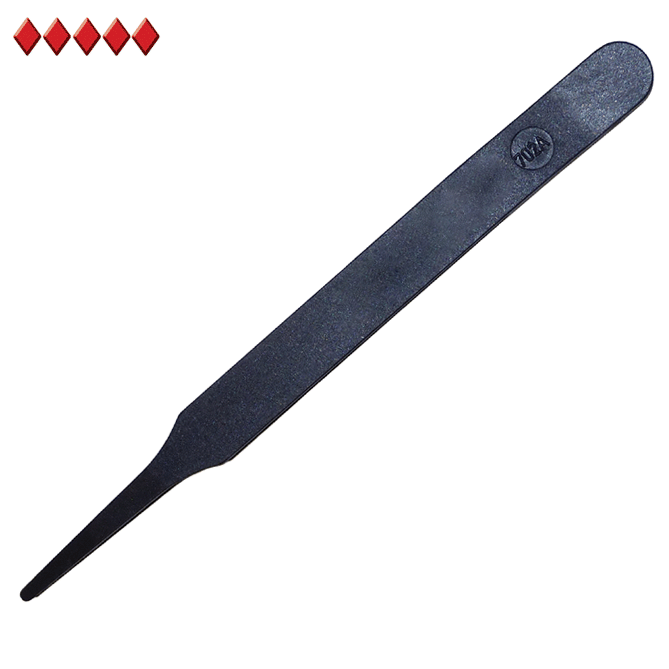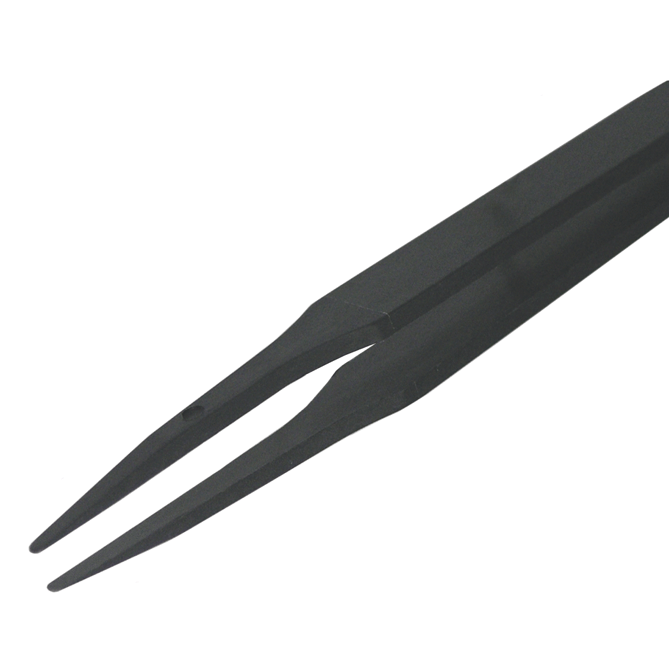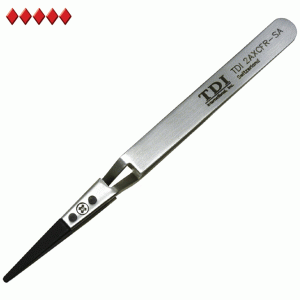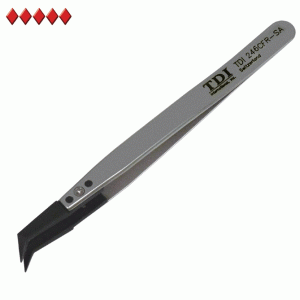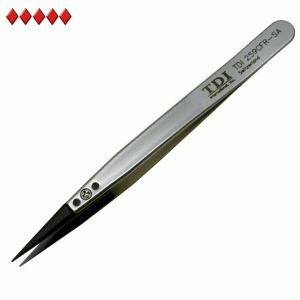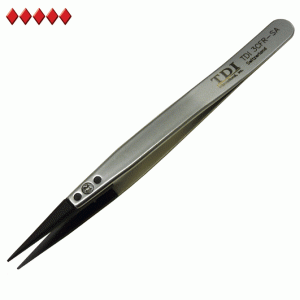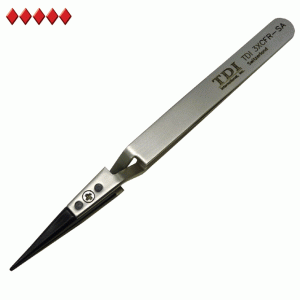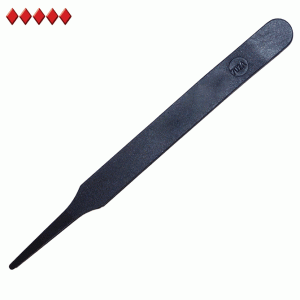#TDI 702ACF High Precision CarboFib Molded Plastic Tweezers
Plastic Tweezers with Flat Duckbill Tips
Conductive “CF” CarboFib Fully Molded Plastic Tweezers
Overall Length (A): 4-1/4″
Tip Width (B): .079″
Tip Thickness (C): .031″
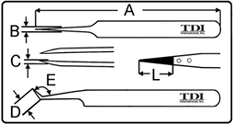
CF Plastic Tweezers Standard Features:
- Black, Non-Magnetic “CF” CarboFib
- Conductive Surface Resistivity 102 Ohms/sq.
- Temperature Resistant 130°C (Continuous Use) -190°C (Short Time)
- Lead Free
- High Precision Fine Tip Balance and Symmetry
More Information for CF Material:
Equivalent to These Part Numbers:
- 2A-ESD
- 481-825
- 5410
Plastic tweezers are ideal for applications with either scratch-sensitive parts, or ESD requirements. Durable material, tips are perfectly balanced offering fine tip symmetry and alignment for precision handling applications.
Manufactured with CF CarboFib material, making these tweezers conductive with a very low surface resistivity. Very high rigidity with excellent tensile strength. In addition, this material is low friction with self lubricating properties. Furthermore, the durability offers excellent wear and abrasion resistance. Finally this material offers good heat capabilities with a maximum temperature resistance of 190°C. As a result these plastic tweezers are an excellent economical alternative to metal tweezers. Most especially in ESD sensitive applications.
CarboFib tweezers have good chemical resistance to oils, grease, fuels, non polar solvents, however they are not resistant to strong acids, alkalis and hot water or steam.
Typical Applications
The CarboFib fully molded tweezers are popular in standard ESD and general electronics assembly and lab applications. In many applications, scratching of sensitive components is a very critical concern. This is when non-metallic tweezers will be require. The non-scratching properties of the CarboFib material, make these these plastic tweezers an excellent choice for handling sensitive ceramic substrates and glass parts. Also used in labs, clean rooms and for circuit board repair and rework.
Generally used in applications where an optimal balance between stiffness and surface smoothness is required.
![]()

